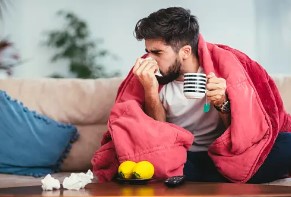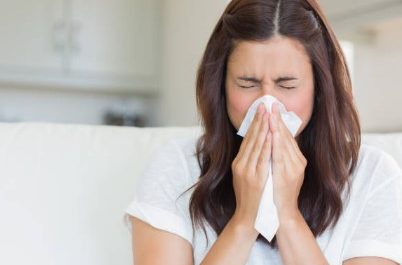There are several over-the-counter medications available to help alleviate symptoms of a runny nose and sneezing. These medications typically fall into two main categories: antihistamines and decongestants. Here are some examples:
- Antihistamines: Antihistamines work by blocking the effects of histamine, a substance released during an allergic reaction that can cause symptoms like a runny nose and sneezing. Some common antihistamines include:
- Cetirizine (Zyrtec)
- Loratadine (Claritin)
- Fexofenadine (Allegra)
- Diphenhydramine (Benadryl)
- Decongestants: Decongestants work by narrowing the blood vessels in the nasal passages, reducing swelling and congestion. They can help relieve a runny nose and sneezing associated with nasal congestion. Common decongestants include:
- Pseudoephedrine (Sudafed)
- Phenylephrine (found in various OTC nasal sprays)
It’s important to note that some medications may contain a combination of antihistamines and decongestants to provide relief from multiple symptoms. Always read and follow the instructions on the packaging and consult with a pharmacist or healthcare professional if you have any underlying medical conditions or are taking other medications. They can help you choose the most appropriate medication based on your specific needs and advise on potential side effects or drug interactions.
How to use the medicine above for Runny Nose and Sneezing
When using over-the-counter medicines for a runny nose and sneezing, it’s essential to follow the instructions provided on the packaging or consult with a healthcare professional for specific dosing guidelines. However, here are some general guidelines on how to use common medications for runny nose and sneezing:
- Antihistamines:
- Read and follow the dosing instructions on the packaging.
- Take the medication with a full glass of water, unless otherwise directed.
- Some antihistamines may be taken with or without food, but it’s best to check the instructions for specific guidance.
- If you are giving the medication to a child, ensure you are using a formulation suitable for their age group and follow the recommended pediatric dosing.
- Decongestants:
- Again, carefully read and adhere to the dosing instructions on the packaging.
- Decongestants are commonly available in tablet or liquid form. Follow the recommended dosage for your age group.
- Take the medication with a full glass of water, unless instructed otherwise.
- Decongestant nasal sprays may have different instructions for use. Follow the package instructions carefully, including the number of sprays per nostril and the frequency of use.
- Decongestant nasal sprays should not be used for more than a few days to avoid rebound congestion, unless directed by a healthcare professional.
It’s important to note that these guidelines are general and may vary depending on the specific medication you are using. Always consult the packaging or speak with a healthcare professional for accurate dosing instructions tailored to your situation. Additionally, if your symptoms worsen or persist despite using over-the-counter medications, it’s recommended to seek medical advice.
What causes Runny Nose and Sneezing
A runny nose and sneezing can be caused by various factors, including:
- Allergies: Allergic rhinitis, commonly known as hay fever, is a common cause of runny nose and sneezing. It occurs when the immune system overreacts to harmless substances such as pollen, pet dander, dust mites, or certain foods. Allergies can trigger the release of histamine, leading to nasal symptoms.
- Common cold: Viral infections, such as the common cold, are another frequent cause of runny nose and sneezing. Cold viruses can irritate the nasal passages, resulting in increased mucus production and nasal congestion.
- Sinusitis: Sinusitis is an inflammation or infection of the sinuses, which can lead to symptoms such as a runny nose, nasal congestion, facial pain or pressure, and sneezing. It can be caused by viruses, bacteria, or allergies.
- Environmental irritants: Exposure to irritants like smoke, strong odors, air pollution, or chemical fumes can irritate the nasal passages, leading to sneezing and a runny nose.
- Certain medications: Some medications, such as certain blood pressure medications, nonsteroidal anti-inflammatory drugs (NSAIDs), or nasal decongestant sprays, can cause nasal symptoms like a runny nose and sneezing as side effects.
- Hormonal changes: Hormonal changes, such as those occurring during pregnancy or with hormonal imbalances, can sometimes lead to nasal symptoms including a runny nose and sneezing.
- Physical or mechanical triggers: Physical triggers such as cold air, changes in humidity, spicy foods, or even bright lights can cause a runny nose and sneezing in some individuals.
It’s important to note that the underlying cause of runny nose and sneezing can vary, and it’s best to consult with a healthcare professional for a proper evaluation if you are experiencing persistent or severe symptoms. They can help determine the specific cause and recommend appropriate treatment options.


